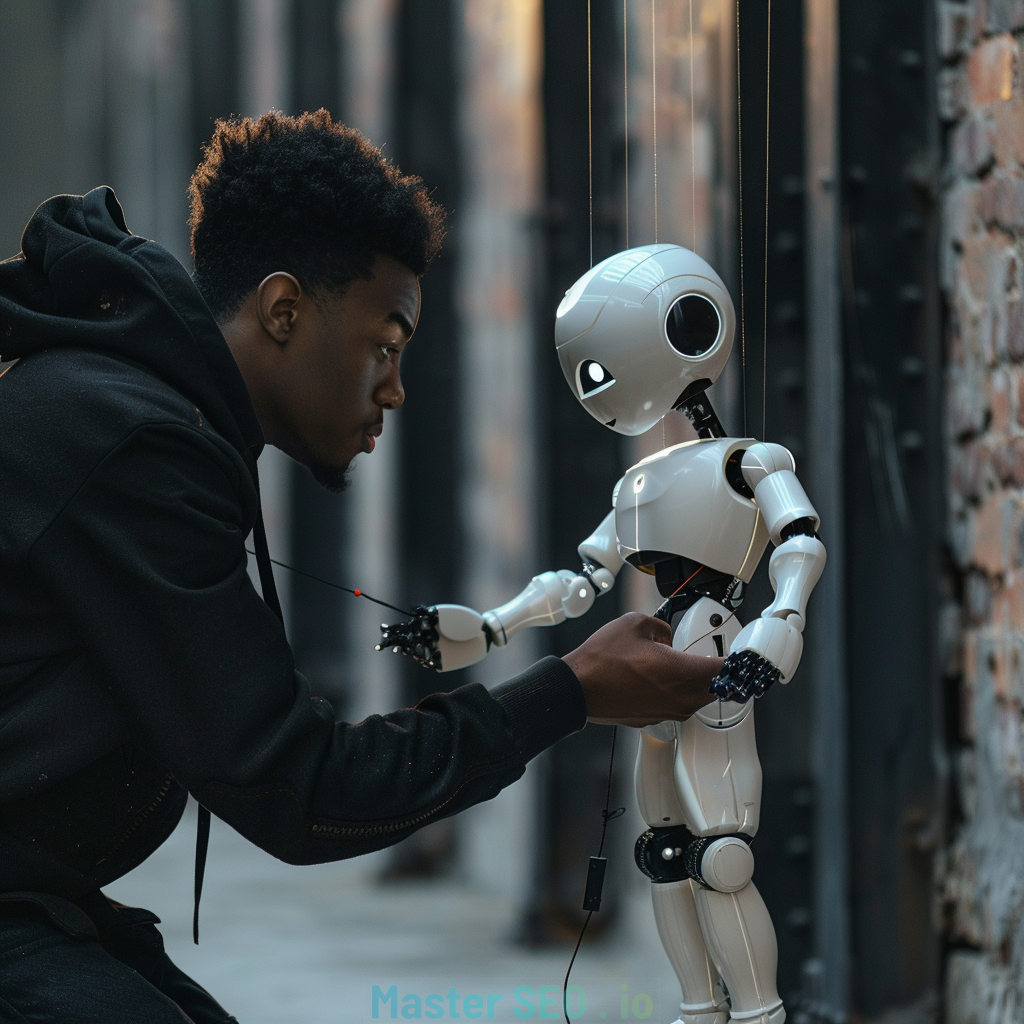In the dynamic world of digital marketing, Search Engine Optimization (SEO) has undergone a profound transformation with the integration of cutting-edge Artificial Intelligence (AI) algorithms. This article aims to delve into the nuanced impact of AI on search engine rankings, addressing the pivotal and controversial question: “Do AI-driven rankings compromise the ‘organic’ nature of search results?” Our exploration navigates the intricate intersection of technology and online visibility, seeking to understand whether the seamless infusion of AI into the SEO landscape enhances or challenges the authenticity of user search experiences.
At the heart of our inquiry lies the ongoing discourse surrounding the integration of AI algorithms and their potential to reshape the organic essence of search outcomes. Join us as we unravel the implications of AI on search engine rankings, navigating through the algorithms and intricacies that define the modern digital frontier. In doing so, we aim to provide insights into the evolving nature of online discoverability and AI’s role in shaping the landscape of digital information retrieval.
The Positive Impact of AI on SEO
1. Content Optimization
AI proves invaluable in optimizing content for search engines. It analyzes keywords, suggests relevant terms, and assists in maintaining optimal keyword density to improve search rankings.
2. Content Generation
AI’s ability to generate high-quality content is a time-saving boon for content creators. It aids in producing blog posts, articles, and product descriptions, providing a resourceful tool for SEO professionals and website owners.
3. Data Analysis
Handling large volumes of data is a forte of AI, aiding SEO professionals in making informed decisions based on user behavior, search trends, and competitive analysis.
4. User Experience
AI contributes to enhancing user experience through personalized content recommendations, chatbots for customer support, and improvements in website load times. These enhancements indirectly benefit SEO by reducing bounce rates and increasing user engagement.
5. Voice Search Optimization
As voice search gains popularity, AI assists in optimizing content to align with voice search queries, which may differ from traditional text-based searches.
6. Local SEO
AI is vital in managing and optimizing local SEO efforts, ensuring businesses appear in local search results, a crucial aspect for local establishments.
AI as a Complementary Tool, Not a Replacement
Despite AI’s transformative impact, SEO remains a complex field that requires human expertise. AI should be viewed as a valuable tool supporting SEO efforts rather than a replacement for the nuanced understanding of search engine algorithms, user intent, and content strategy that human professionals bring.
In essence, AI enhances the capabilities of SEO practitioners, allowing them to refine strategies and achieve better results.
The Evolution of SEO with AI Models
Models like GPT-3 and ChatGPT have significantly influenced the landscape of SEO. Their impact on various aspects of SEO is evident:
1. Natural Language Processing (NLP)
AI algorithms like GPT-3 and ChatGPT leverage NLP to understand and generate human-like text. This advancement enables search engines to comprehend context and user intent better, resulting in more accurate search results.
2. Competitive Analysis
AI tools allow SEO professionals to analyze competitors’ websites and strategies, identifying opportunities and gaps in their SEO efforts.
3. Algorithm Updates
Given the frequent updates to search engine algorithms, AI empowers SEO professionals with data-driven insights and recommendations, helping them adapt to changes effectively.
Does AI Compromise ‘Organic’ Search Results?
Despite AI’s numerous advantages to SEO, the essence of ‘organic’ search results is still preserved. AI serves as a tool to augment human efforts, enabling more efficient and data-driven strategies. The ethical use of AI is crucial to maintaining the integrity of search results.
In conclusion, the synergy between AI and SEO is a testament to the ever-evolving nature of the digital landscape. SEO professionals should embrace AI as a powerful ally in achieving optimal search engine rankings.
The Impact of AI SEO on SERP Rankings and Visibility
The dynamic landscape of AI SEO and its impact on Search Engine Results Pages (SERPs) is a continually evolving area. This section explores key considerations regarding the influence of AI SEO on SERP ranking and visibility, particularly concerning Google’s identification of AI-generated content.
Key Considerations
1. Quality and Relevance
Search engines prioritize high-quality, relevant content. While AI aids in content creation and optimization, ensuring content quality and relevance is imperative to avoid negative consequences such as poor rankings or penalties.
2. Natural Language Processing
Advancements in NLP enable AI algorithms to understand context, semantics, and user intent. When utilizing AI tools for SEO content, maintaining a natural and coherent flow is essential to cater to user needs.
3. Ethical AI Practices
Adhering to ethical AI practices is crucial to avoid the misuse of AI or automated content-generation techniques. Providing genuinely valuable and beneficial information is paramount.
4. Regular Algorithm Updates
Search engines frequently update algorithms to enhance search results. Staying informed about updates and aligning SEO strategies, including AI components, with the latest guidelines is essential for maintaining or improving SERP rankings.
In summary, while AI SEO brings significant advancements, adherence to ethical practices and a focus on quality content remains pivotal for success in the competitive SERP landscape.
An In-Depth Look at Google’s Search-Generative Experience (SGE)
Google’s Search-Generative Experience (SGE) is a revolutionary update leveraging AI to transform the search landscape. This section provides an in-depth exploration of SGE, its importance, functionality, and implications for websites.
What is SGE?
SGE is an experimental update to Google’s search engine that utilizes AI to generate contextual answers to complex questions. It encompasses three key elements:
- AI Snapshot: An AI-generated snippet at the top of the SERP that provides concise answers to user queries.
- Conversational Mode: Allows users to ask follow-up questions about the original search while maintaining context.
- Vertical Experiences: Offers a preferred list of features and detailed product information in commercial searches.
Why is SGE Important?
SGE marks a significant shift in the search landscape by providing quick answers directly on the SERP. This impacts organic discoverability and user productivity, steering users to remain on the SERP rather than clicking through to external sites.
How Does SGE Work?
SGE, part of Google Labs, utilizes generative AI to review top-ranking SERP content and generate specific answers to user queries without requiring them to click links. The AI Snapshot appears at the top of the SERP, providing users with instant, digestible answers.
Impact on SERP
The AI Snapshot dominates the SERP, pushing down organic and paid results. While it cites sources, users may have fewer reasons to click on traditional links, affecting site traffic and click-through rates.
Optimizing for SGE
Optimizing for SGE involves understanding when the AI Snapshot is likely to appear. While the specifics are unclear, direct questions to Google tend to trigger SGE. Adhering to ethical content creation and staying informed about AI advancements are essential for navigating this evolving search landscape.
The integration of Artificial Intelligence (AI) algorithms has undeniably ushered in a new era for Search Engine Optimization (SEO), revolutionizing how content is discovered and ranked online. From content optimization and generation to user experience enhancement and local SEO, AI has become an indispensable tool for SEO professionals, amplifying their capabilities and strategies. However, amidst this digital evolution, the human touch remains irreplaceable, emphasizing the need for a symbiotic relationship between AI technologies and human expertise in SEO.
SEO professionals should embrace AI as a powerful ally rather than a threat as the landscape evolves. The ethical application of AI and a keen understanding of its capabilities and limitations will be paramount for sustainable success in the ever-changing realm of search engine rankings. Moreover, as the Search-Generative Experience (SGE) emerges as a transformative phase in search, the imperative for websites to adapt to the changing dynamics of AI-driven experiences becomes increasingly apparent. Understanding SGE, deciphering its impact on organic discoverability, and optimizing content accordingly will be crucial for websites that navigate and thrive in this evolving search paradigm.
Amidst these advancements, two controversial questions emerge: First, does the rise of AI-driven rankings compromise the authenticity of ‘organic’ search results? And second, as SGE reshapes the SERP landscape, does it mark a necessary evolution or a potential threat to the traditional click-through model, challenging established notions of online visibility and user engagement? These questions underscore the complex interplay between technology and user expectations, inviting ongoing discourse and exploration as the digital landscape redefines how information is sought, discovered, and consumed online.

Jenn Mathews, known as the SEOGoddess, is an esteemed expert in Enterprise SEO with over 20 years of experience. She has held key positions at organizations like GitHub, Groupon, and Nordstrom, where she has showcased her expertise in technical SEO, strategic development, and championing SEO within large enterprises. Jenn now shares her knowledge through mentoring, writing for Search Engine Journal (SEJ), Search Engine Land (SEL) and speaking engagements.





